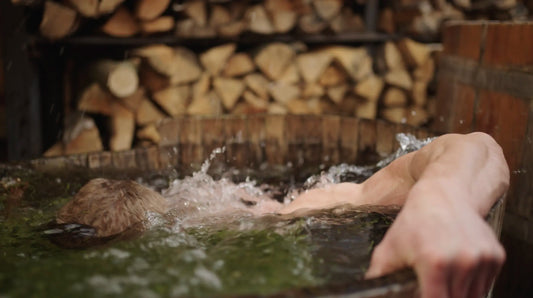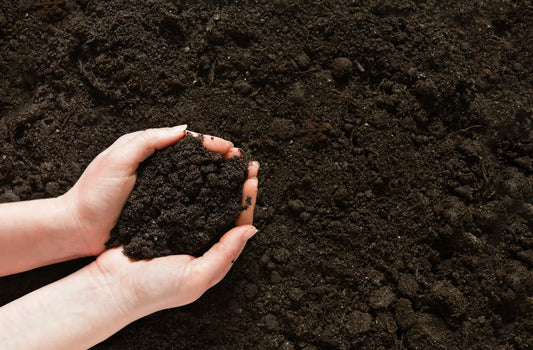Ever heard of the trend of plunging into ice-cold water (cold plunge tub) after a workout? It might sound like pure madness, but ice baths have been used for centuries to boost health and well-being.
Recently, they’ve gained popularity not just among athletes but also among everyday folks looking to improve their health.
One fascinating benefit is their potential to support and enhance the immune system. Let’s dive in (pun intended) and explore how ice baths can give your immune system a chilly boost.
The science behind ice baths
When you immerse yourself in an ice bath, your body undergoes a rapid cooling process. This sudden drop in temperature triggers various physiological responses, including vasoconstriction (narrowing of blood vessels) and a reduction in metabolic activity.
Historically, cold water immersion has been used by different cultures for its therapeutic benefits, ranging from Roman bathhouses to Scandinavian winter swims.
Understanding the immune system
Before we get into how ice baths (cold plunge tubs) affect immunity, let’s have a quick refresher on what the immune system does. It’s our body’s defense mechanism against infections, diseases, and foreign invaders.
Key players in the immune system include white blood cells, antibodies, and the lymphatic system. They all work together to keep us healthy and fend off pathogens.
Ice baths and inflammation reduction

One of the most notable benefits of ice baths is their ability to reduce inflammation. Inflammation is a natural response to injury or infection, but chronic inflammation can wreak havoc on the body and weaken the immune system. By reducing inflammation, ice baths help your immune system function more efficiently.
Boosting white blood cells
White blood cells (WBCs) are the warriors of our immune system, fighting off infections and foreign invaders. Cold exposure, like taking an ice bath, has been shown to increase the count of WBCs. This boost helps the body become more adept at defending itself against illnesses.
Improving circulation
Good circulation is crucial for a healthy immune system. Ice baths stimulate blood flow by causing the blood vessels to constrict and then dilate upon rewarming. This process helps to flush out toxins and improves the delivery of oxygen and nutrients to cells, enhancing overall immune function.
Stress reduction and immune function
Stress is a notorious immune suppressor. When we’re stressed, our bodies produce cortisol, a hormone that can inhibit the immune system. Ice baths have a remarkable ability to reduce stress by triggering the release of endorphins, the body’s natural feel-good hormones. Less stress means a stronger immune system.
Hormonal responses to ice baths
Cold exposure affects various hormones, including norepinephrine and cortisol. Norepinephrine helps reduce inflammation, while cortisol, despite its bad rap, is necessary for regulating metabolism and the immune response. The right balance of these hormones, induced by ice baths, can enhance immune function.
Cold shock proteins
When exposed to cold, our bodies produce cold shock proteins. These proteins help protect cells and assist in the repair process, contributing to overall cellular health. Healthy cells are essential for a robust immune system, making cold shock proteins a crucial factor in immunity.
Detoxification and immune health
Ice baths can aid in detoxification by improving lymphatic circulation. The lymphatic system is part of the immune system, responsible for removing toxins and waste from the body. Enhanced lymphatic flow means a cleaner, healthier internal environment, which supports immune health.
Ice baths and mental health
Mental health and immune function are closely linked. Poor mental health can weaken the immune system, making us more susceptible to illnesses. Ice baths can improve mental well-being by reducing stress and anxiety, thus indirectly boosting the immune system.
Athletic recovery and immunity
Athletes have long used ice baths to speed up recovery. Quick recovery means they can train harder and more frequently, which keeps them in peak physical condition. A well-conditioned body is better at fighting off infections and maintaining overall health, including immune health.
Practical tips for safe ice bathing
If you’re new to ice baths, start slowly. Begin with cold showers before progressing to full ice baths.
What temperature is ideal for an ice bath? Aim for a water temperature of around 50-59°F (10-15°C) and gradually increase the duration of your baths as your body adapts. Always listen to your body and consult a healthcare professional if you have any concerns.
How often should you take ice baths for immune benefits?

It depends on your individual tolerance and goals. Generally, 2-3 times a week is effective for most people.
While ice baths can be beneficial, they’re not for everyone. People with cardiovascular issues, cold allergies, or certain chronic conditions should avoid them. Overexposure to cold can lead to hypothermia or frostbite, so always practice caution and ensure you're supervised if you're a beginner.
How long should each ice bath session last? Start with 5-10 minutes and gradually increase as your body adapts.
Conclusion
Ice baths offer a myriad of benefits, from reducing inflammation to boosting white blood cells and improving circulation. By managing stress and supporting mental health, they indirectly enhance immune function as well.
If approached safely and gradually, cold plunge tubs can be a valuable tool in maintaining a robust and healthy immune system.


